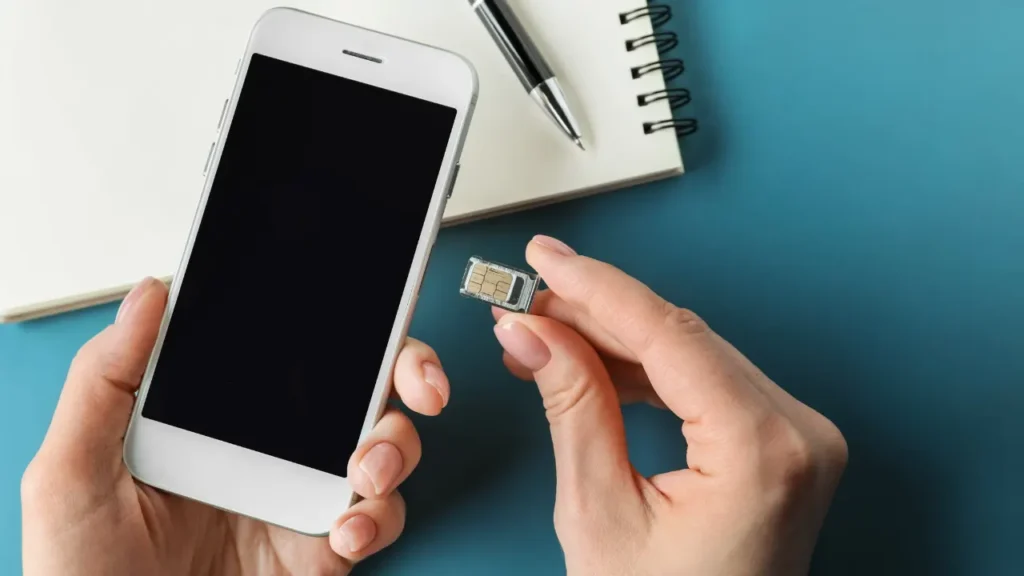The amount of data you need for foreign travel varies depending on your usage habits. For moderate use, a plan with 2-5 GB should suffice for most travelers.
Planning a trip abroad can be thrilling, but staying connected is often a top concern. Navigating unknown streets, translating foreign languages, and sharing your adventures on social media all require data. The key is to balance your needs against the potential costs.
It’s crucial to determine how much time you’ll spend online and for what purposes. Essential tasks such as GPS navigation, hotel booking, and restaurant searching consume data, but can be managed with a moderate amount of data. Pre-trip preparation by downloading offline maps and travel guides will help minimize data usage abroad.
Choosing the right data plan prevents the headache of overage charges and keeps you connected smoothly during your travels. Remember to check your operator’s roaming charges or consider purchasing a local SIM card for more cost-effective data usage.
Table of Contents
ToggleWhy Data Is Important For Foreign Travel
Embarking on a journey to a new country can be an exhilarating experience. Yet, amidst the excitement, it’s essential to consider practicality, especially when it comes to staying connected.
Data plays a crucial role in foreign travel, from navigating unfamiliar streets to booking last-minute activities or simply keeping in touch with those back home. Knowing how much data you’ll need ensures a seamless and stress-free adventure abroad. Dive into the reasons why a robust data plan is your best travel companion.
Accessing Maps And Navigation
Ever found yourself lost in a new city? A sufficient data plan is your lifeline. Personal devices, loaded with data, transform into powerful GPS units, offering:
- Real-time maps that highlight the best route to your destination.
- Turn-by-turn navigation instructions to guide your every step.
- Access to public transport schedules, reducing the wait and hassle.
Having data at your fingertips helps you embrace spontaneity while also ensuring you can find your way back to your accommodation with ease.
Staying Connected With Loved Ones
Traveling might take you across oceans, but data keeps your relationships anchored. With a solid data plan, travelers can:
- Initiate video calls to share their experiences in real time.
- Send instant messages and photos, keeping the conversation going.
- Utilize social media to post updates, creating a digital travel diary.
Stay present in the lives of those who matter most, no matter the distance.
Researching And Booking Activities
In the dynamic world of travel, plans can change at a moment’s notice. Data ensures you remain flexible, allowing you to:
- Look up last-minute changes in opening hours or availability.
- Read reviews on the go to make informed decisions about attractions.
- Book tickets online to avoid long queues and enjoy exclusive discounts.
With instant access to the web, you can tailor your itinerary to suit your desires and make the most of every travel opportunity.

Factors To Consider When Choosing Data Plans
Finding the right data plan for your foreign travels is crucial to stay connected without breaking the bank. Before you grab your passport and pack your bags, take a moment to evaluate the key aspects that will dictate your data usage while abroad. Each traveler’s needs are unique and it’s important to tailor your data selection to your personal usage habits, travel duration, and budget. With the right plan, you’ll be able to share your travels, access maps, and stay in touch without the fear of unexpected charges.
Consider the length of your trip to determine the amount of data you’ll need. Shorter trips may only require a minimal amount of data, whereas those embarking on longer journeys might benefit from a larger plan or even multiple top-ups.
- Weekend Getaways: A few days away may only need a small data bundle or a pay-as-you-go arrangement.
- Extended Trips: For those overseas for several weeks or months, a larger package or a local SIM card can be more cost-effective.
Your online activities impact your data consumption significantly. Identifying your internet habits helps in selecting a plan that suits your needs.
- Email and Messaging: Light users, primarily checking emails and messaging, can opt for a basic plan.
- Social Media and Streaming: Frequent posting and video streaming require a more robust data plan.
- Navigation Tools: If you rely heavily on maps and travel apps, ensure your plan can accommodate this usage.
Finding a balance between cost and your data needs is key. Seek out plans that offer the best value without compromising on quality or coverage. Consider both short-term and long-term costs.
| Plan Type | Cost | Data Allowance |
|---|---|---|
| Pay-As-You-Go | Variable | Flexible |
| Prepaid Bundle | Fixed | Predetermined |
| Local SIM Card | Initial + Top-Up | High Value |
Analyze the quality of the network provider, roaming charges, and any hidden fees. Evaluate the flexibility of the plan, as you may need to adjust data usage as your travel progresses.
You Can Read More
- How Much Data Do I Need for 1 Week
- How to Save Data When Traveling Internationally
- How Much Data Do I Need For Travel
Tips For Managing Data Usage While Traveling
Embarking on a journey abroad sparks excitement and adventure, but it also brings the challenge of managing data usage effectively. It’s crucial to strike a balance between staying connected and not breaking the bank on costly roaming charges. In this guide, we’ll explore strategic tips for keeping data consumption in check while you traverse the globe.
Using Wi-fi Whenever Possible
Maximizing the use of Wi-Fi is a traveler’s best friend for minimizing data costs. Most hotels, cafes, and public spaces offer Wi-Fi, allowing you to download, stream, or check emails without tapping into your data plan.
- Before leaving, download offline maps, travel guides, and entertainment.
- Log into secure Wi-Fi networks with a password rather than open networks which might expose your data to security risks.
- Always turn off mobile data and only enable Wi-Fi when needed to avoid unintended data use.
Disabling Automatic App Updates
Smartphones often update apps automatically, leading to unexpected data use. To prevent background updates, change your settings to update apps only when connected to Wi-Fi.
- For Android, open Google Play Store settings, tap on ‘Auto-update apps’, and select ‘Over Wi-Fi only’.
- For iOS, go to ‘Settings’, tap ‘iTunes & App Store’, and toggle off ‘Use Cellular Data’ for updates.
Using Data Compression And Optimization Tools
Various tools can help reduce data consumption by compressing and optimizing web traffic. For instance, web browsers like Google Chrome offer a ‘Data Saver’ mode that minimizes page size.
| Tool Type | Description | Benefit |
|---|---|---|
| Data Compression App | Reduces data usage by compressing images, text, and videos. | Significantly cuts the amount of data needed while browsing. |
| VPN with Data Compression | Offers data encryption and the option to compress data. | Safely browse with reduced data and added security. |
| Offline Browser Extensions | Allows you to save web pages to access them offline. | Limits the need for continuous data use for repeated access to certain pages. |
Frequently Asked Questions Of How Much Data Do I Need For Foreign Travel
How Many Gb Do I Need For International Travel?
The amount of GB needed for international travel varies, but a minimum of 3-7 GB is advisable for moderate use, including navigation and social media. Opt for higher data plans if you anticipate heavy usage.
Is 5gb Enough For 10 Days?
5GB for 10 days can suffice for basic web browsing and emails, but streaming, gaming, or large downloads will likely exceed this limit. Monitor your usage to avoid running out.
Is 10gb Enough For 2 Weeks?
10GB is generally sufficient for basic browsing and email for 2 weeks, but not for heavy data usage like streaming or downloading large files. Data needs vary per user.
How Many Hours Does It Take To Use 1gb Of Data?
The time it takes to use 1GB of data varies based on activity. In general web browsing, it could last around 12 hours, while streaming high-quality video might consume 1GB in less than an hour.
Conclusion
Navigating data needs for foreign travel doesn’t have to be daunting. With a tailored plan and local offers, you can stay connected without overspending. Remember, usage varies, so choose a package that fits your itinerary. Enjoy your trip, and share memories with ease, wherever your adventures take you.
Safe travels!



